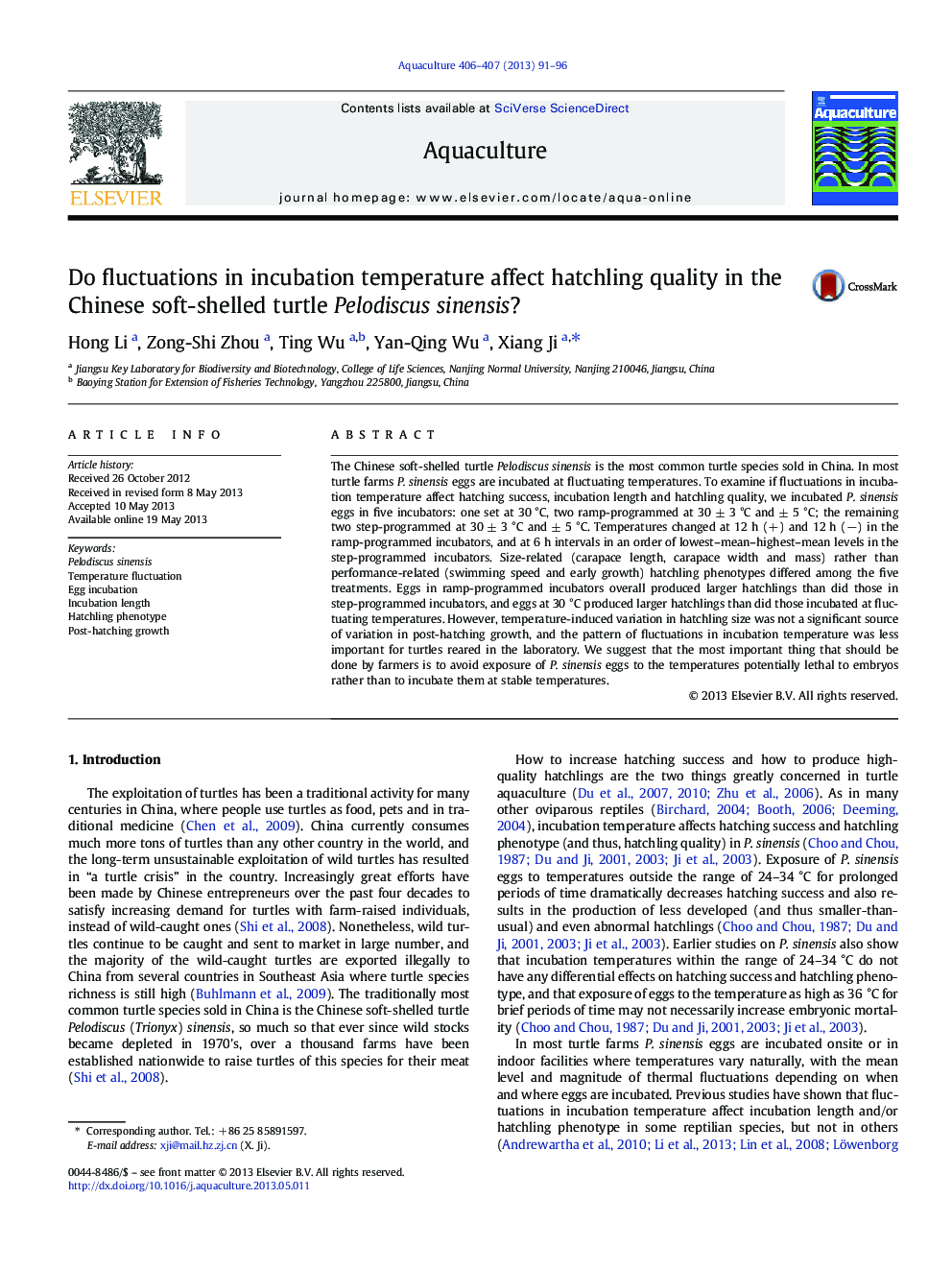| Article ID | Journal | Published Year | Pages | File Type |
|---|---|---|---|---|
| 8495598 | Aquaculture | 2013 | 6 Pages |
Abstract
The Chinese soft-shelled turtle Pelodiscus sinensis is the most common turtle species sold in China. In most turtle farms P. sinensis eggs are incubated at fluctuating temperatures. To examine if fluctuations in incubation temperature affect hatching success, incubation length and hatchling quality, we incubated P. sinensis eggs in five incubators: one set at 30 °C, two ramp-programmed at 30 ± 3 °C and ± 5 °C; the remaining two step-programmed at 30 ± 3 °C and ± 5 °C. Temperatures changed at 12 h (+) and 12 h (â) in the ramp-programmed incubators, and at 6 h intervals in an order of lowest-mean-highest-mean levels in the step-programmed incubators. Size-related (carapace length, carapace width and mass) rather than performance-related (swimming speed and early growth) hatchling phenotypes differed among the five treatments. Eggs in ramp-programmed incubators overall produced larger hatchlings than did those in step-programmed incubators, and eggs at 30 °C produced larger hatchlings than did those incubated at fluctuating temperatures. However, temperature-induced variation in hatchling size was not a significant source of variation in post-hatching growth, and the pattern of fluctuations in incubation temperature was less important for turtles reared in the laboratory. We suggest that the most important thing that should be done by farmers is to avoid exposure of P. sinensis eggs to the temperatures potentially lethal to embryos rather than to incubate them at stable temperatures.
Keywords
Related Topics
Life Sciences
Agricultural and Biological Sciences
Aquatic Science
Authors
Hong Li, Zong-Shi Zhou, Ting Wu, Yan-Qing Wu, Xiang Ji,
